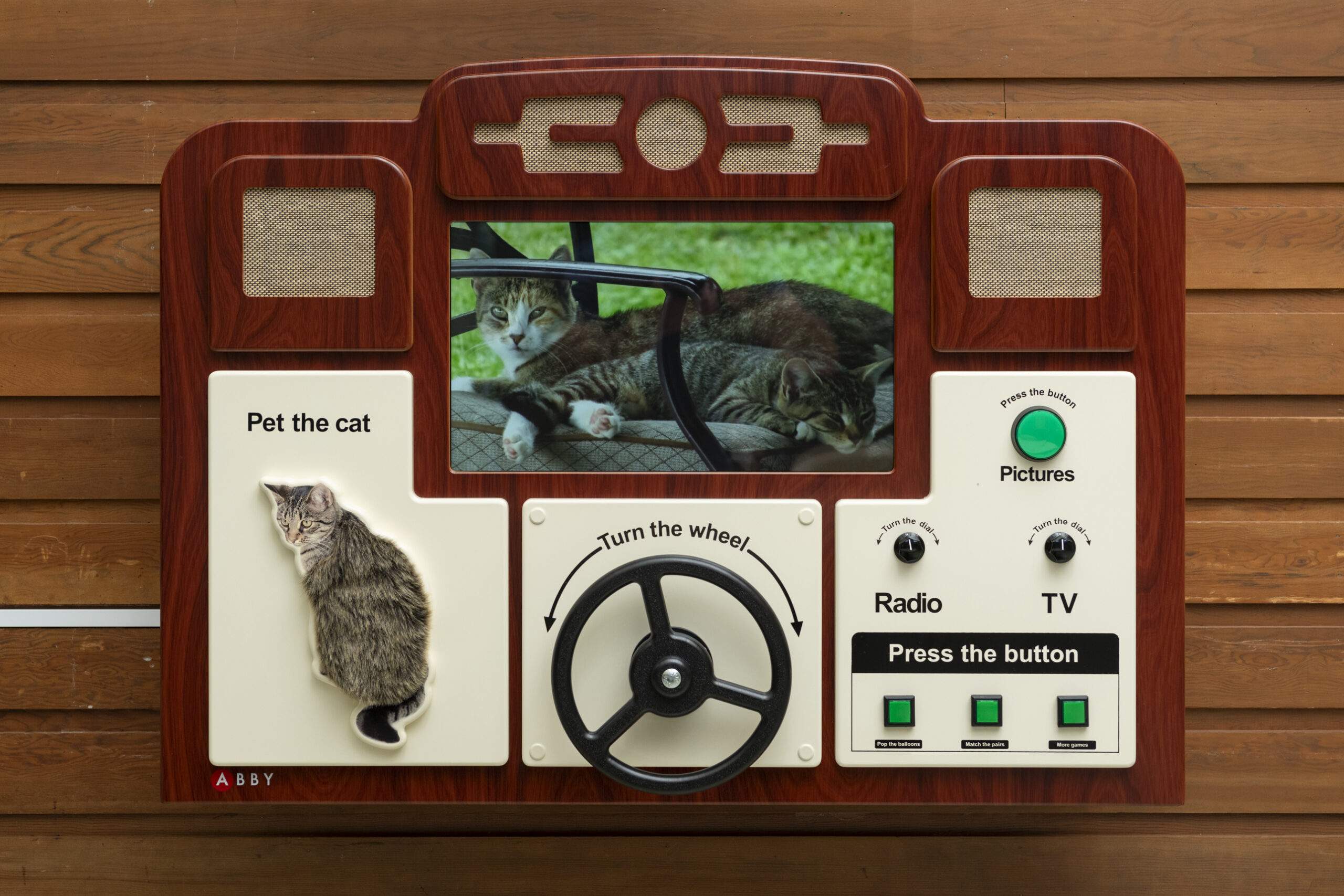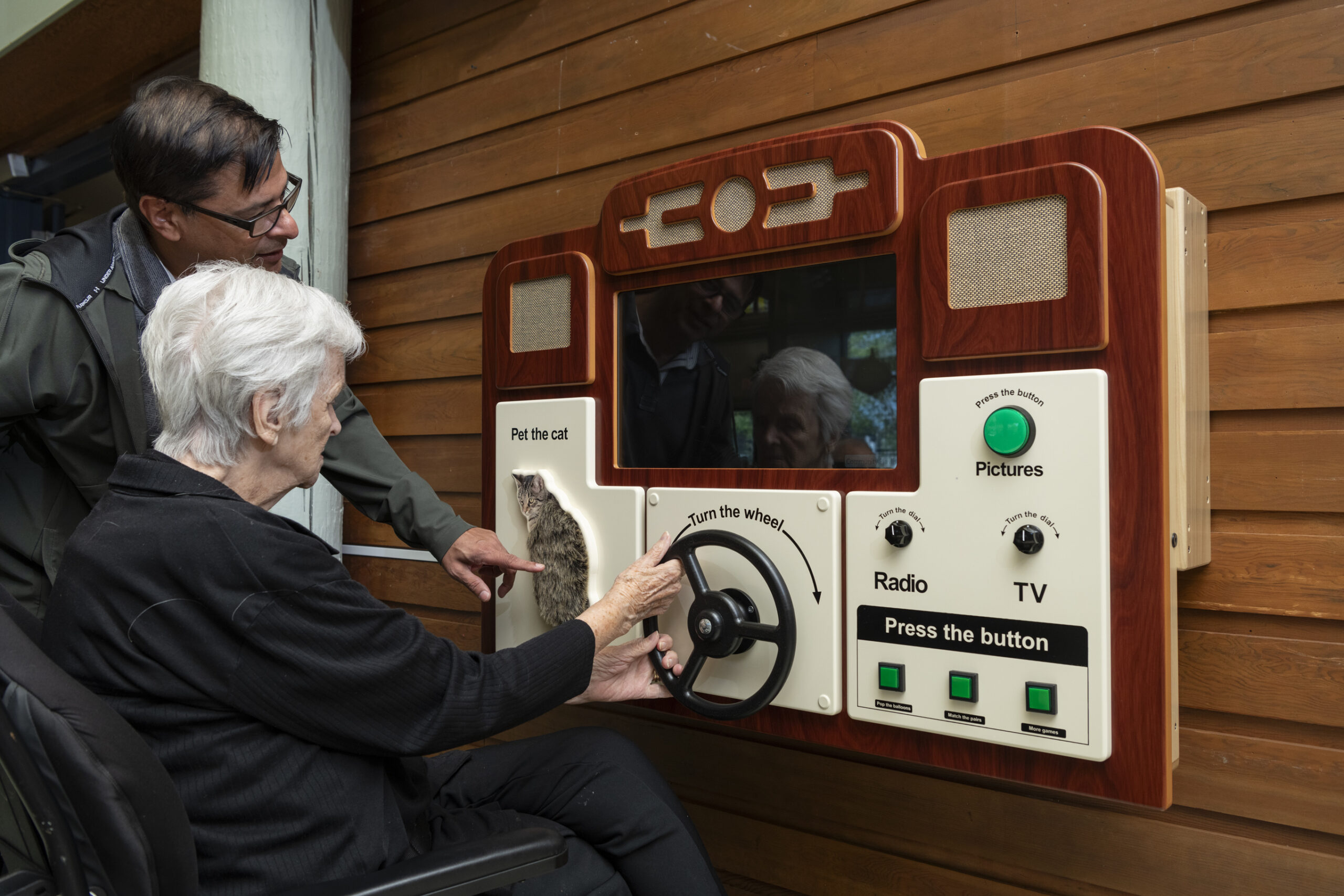
How the ABBY Sensory System Enhances Well-Being Through Interactive Experiences
February is Recreational Therapy Month, and we’re celebrating the impact of sensory engagement in dementia care with the ABBY Sensory System, funded by DHCH Foundation, thanks to donor support from the Delta Hospital Auxiliary Society.
The ABBY Sensory System invites residents to reconnect with their remaining abilities and interests, fostering independence, emotional well-being, and cognitive stimulation. Designed to engage individuals in a way that’s both accessible and enjoyable, the system encourages natural curiosity and brings joy to both residents and visitors. It’s an interactive experience—from ‘petting the cat’ to taking a scenic country drive with a simple turn of a wheel. The system features games and plenty of stimuli, offering a meaningful experience that can reduce responsive behaviors such as wandering and frustration.

ABBY Sensory System
We spoke with Stephen Verhoven, Supervisor of Therapeutic Recreation at Mountain View Manor, about the ABBY Sensory System and its impact on residents. The ABBY Sensory System is more than just an interactive tool, it’s a way to reach residents on a deeply personal level. Unlike traditional group activities, ABBY is used one-on-one, offering a tailored experience for each resident. “It’s not something we set up and put away. It’s always there, ready to engage a resident whenever they need it,” Stephen explains. Whether a resident is feeling restless, or a family member is searching for a meaningful way to connect with their loved one, the ABBY system provides an inviting, pressure-free opportunity.
Residents respond most to the familiar sights and sounds the ABBY system provides. Classic radio songs, old movie clips, and calming imagery spark memories and smiles, but by far, the most beloved feature is the driving simulation. This is where residents turn a steering wheel and imagine themselves cruising along a peaceful countryside road. Stephen has witnessed firsthand the transformative power of sensory engagement. “The most rewarding moments are the smiles and laughter,” he shares. “Residents seem less anxious after using the ABBY system. There’s a noticeable shift in their mood—they’re just happier.”
One of the ABBY systems’ greatest strengths is its ease of use. Unlike other sensory tools that require setup and storage, the ABBY system is always accessible, mounted on the wall like an open invitation. “A resident can just walk up to it and start pressing buttons, turning wheels, or flipping switches,” Stephen says. “It doesn’t require learning new techniques, it’s intuitive and welcoming.” With the ABBY system, engagement happens naturally bringing comfort, connection, and joy to residents, one interaction at a time.
Recreational therapy is all about enhancing quality of life, and for residents in the mid-to-late stages of Alzheimer’s, the ABBY Sensory System is a transformative tool. “Engaging these residents in traditional activities can be challenging,” Stephen notes, “but the ABBY system provides a unique way to reach them, stimulating their minds and senses in a way that feels natural.” At the heart of this impact is our dedicated Recreational Therapy team, whose commitment, creativity, and compassion bring joy and meaningful connections to those in our care. Their work enriches lives every day, and we are incredibly grateful for all they do to make a difference.

Stephen Verhoven, Supervisor of Therapeutic Recreation at Mountain View Manor helping resident use ABBY Sensory System
